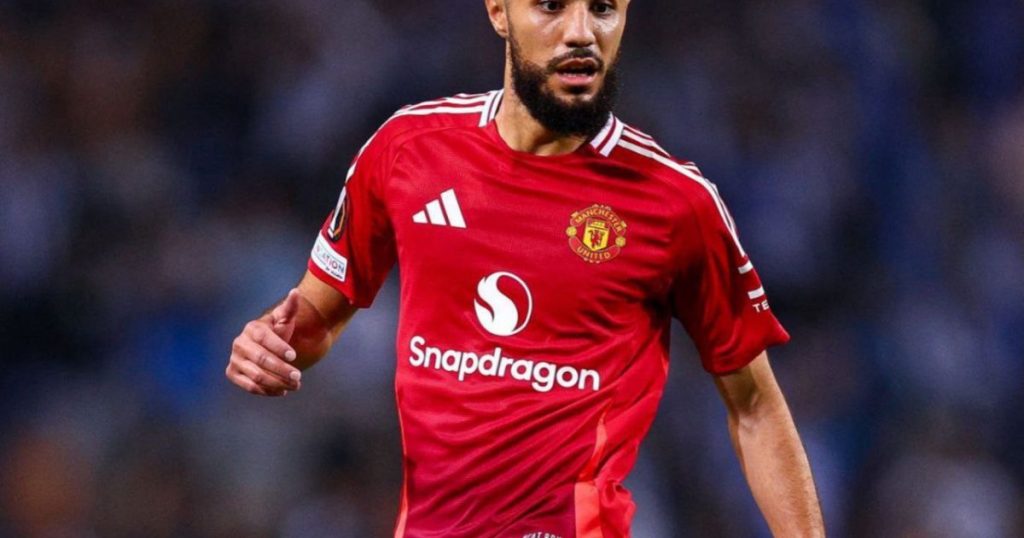Manchester United’s recent acquisition, Noussair Mazraoui, is facing a significant setback as reports confirm he has been diagnosed with cardiac arrhythmia, a condition that affects the regularity of heartbeats. This diagnosis is particularly troubling as it comes during a tumultuous time for the club, which is experiencing its worst-ever start to a Premier League season, having accumulated just eight points from the first seven matches. The situation has raised concerns, not just for Mazraoui’s health, but also for Manchester United as they continue to navigate a challenging season filled with numerous obstacles.
The news of Mazraoui’s condition, shared by Italian journalist Nicolo Schira, indicates that the player will be sidelined for approximately two months. Cardiac arrhythmia can manifest in various ways—when the heart beats too quickly, too slowly, or irregularly—but fortunately, it can often be managed effectively with proper medical care. According to the NHS, many affected individuals are capable of living normal lives after a thorough diagnosis and the implementation of an appropriate treatment plan. For Manchester United, however, Mazraoui’s absence is a notable loss, particularly for manager Erik ten Hag, who had utilized him consistently across all Premier League matches this season.
Mazraoui, who was signed for £17 million, had begun to carve out a niche for himself at Old Trafford. His performances on the pitch were commendable; for instance, he registered an assist during a narrow 2-1 defeat against Brighton in August. The player had shown promise as a vital part of the squad, demonstrating the ability to contribute effectively at both ends of the field. This potential for impact makes his forthcoming absence all the more disappointing for the club and its supporters.
This isn’t the first time the Moroccan right-back has faced health issues related to his heart. In early 2023, while he was still a member of Bayern Munich, Mazraoui was diagnosed with inflammation of heart tissue following a COVID-19 infection. At that time, he missed a critical match for Morocco in the World Cup quarter-finals against Portugal due to this health complication. Subsequent evaluations revealed inflammation in the pericardium, the protective sac around the heart, which underscores the seriousness of heart-related health concerns for athletes.
Mazraoui’s situation also draws broader attention to the prevalence of heart issues among professional football players. The football community has seen several high-profile cases in recent years that have raised alarm, such as Christian Eriksen’s cardiac arrest during Denmark’s Euro 2020 match against Finland. Eriksen has since returned to football, equipped with an implantable cardioverter defibrillator (ICD). Another instance includes Sergio Aguero, whose diagnosis of cardiac arrhythmia during his time at Barcelona ultimately led to his retirement from professional football. Such incidents serve as a reminder of how critical heart health is in sports, emphasizing the importance of regular monitoring and intervention when needed.
Moreover, heart-related issues in the sport have sometimes resulted in tragic outcomes, highlighting the potential severity of these conditions. The untimely passing of Uruguayan player Juan Izquierdo at the age of 27 during a Copa Libertadores match, due to cardiac arrhythmia, reinforces this concern. As Mazraoui embarks on his recovery journey, the further implications for Manchester United will be keenly observed, particularly considering the team’s struggles and mounting injuries among other key players, including the £52 million signing Leny Yoro, who has been out since pre-season. The intersection of player health and overall team performance remains a focal point for everyone involved with Manchester United as they navigate a particularly challenging season.


